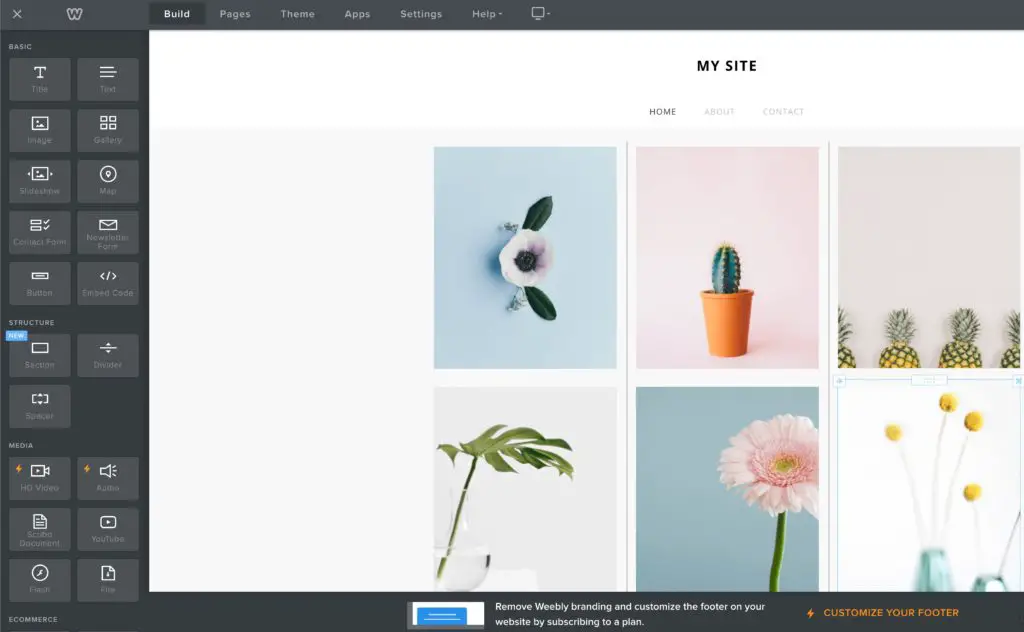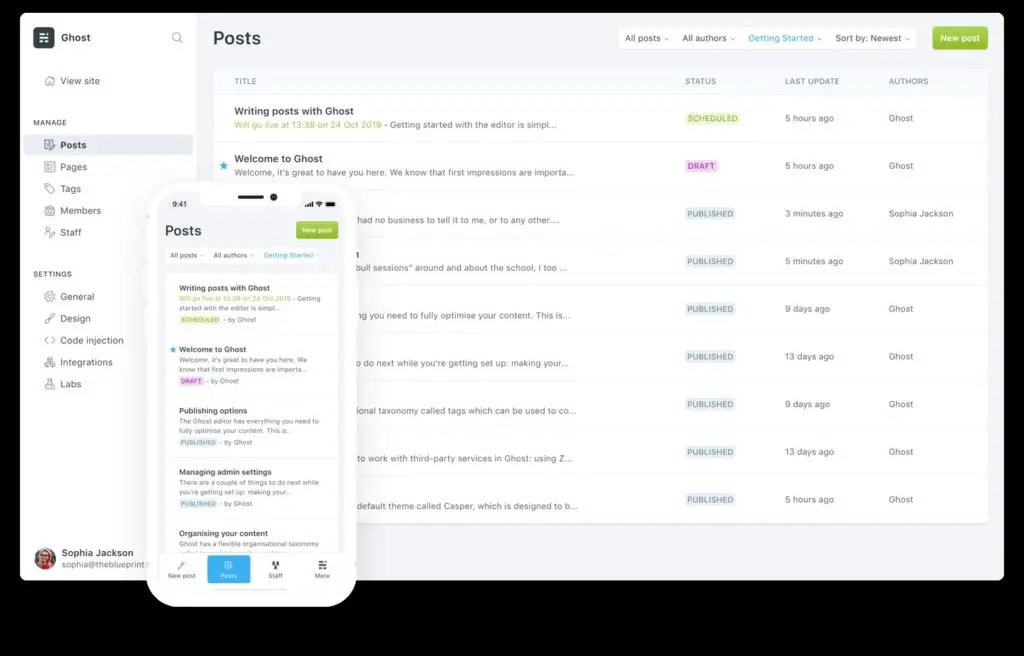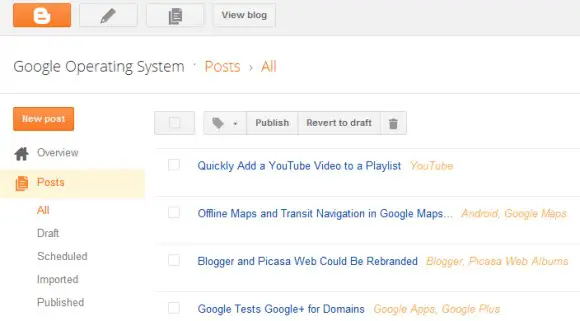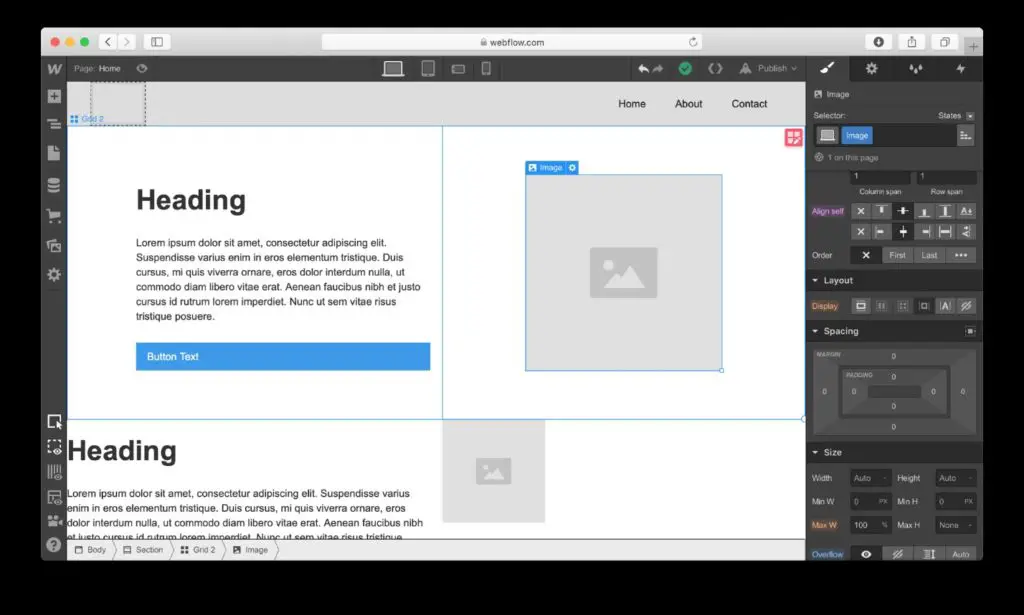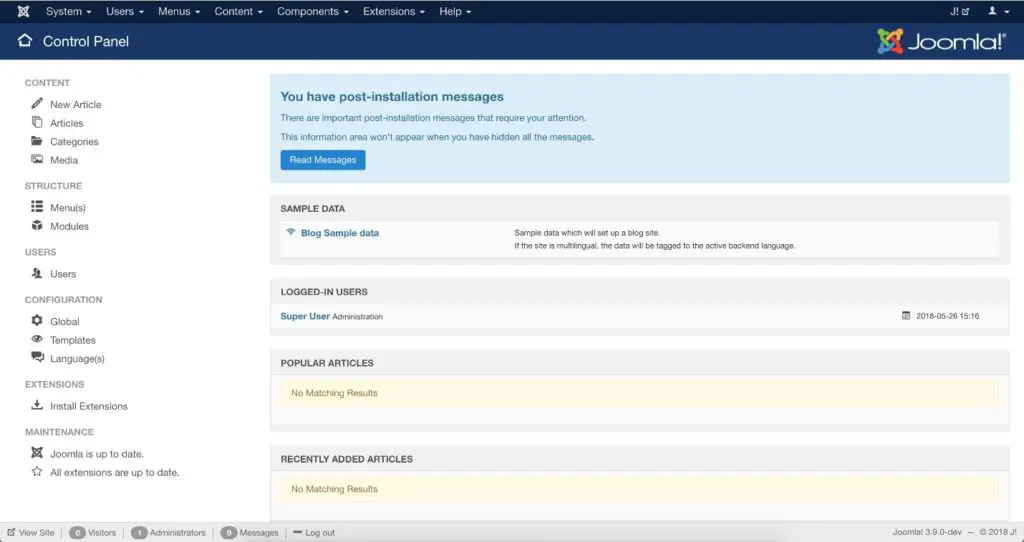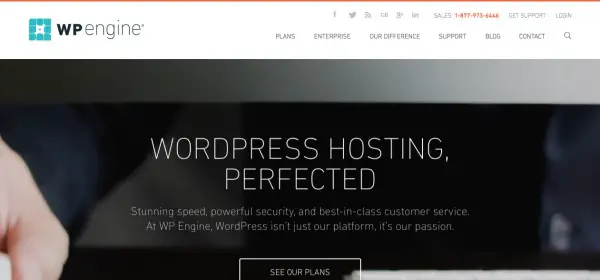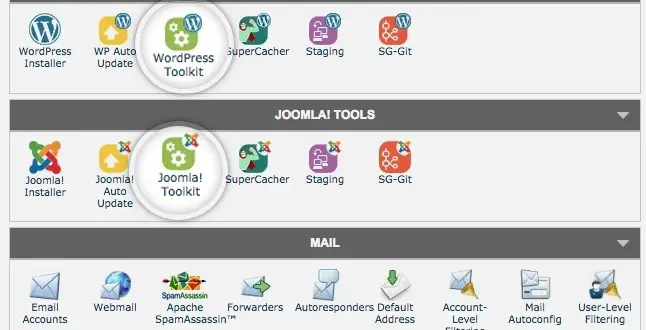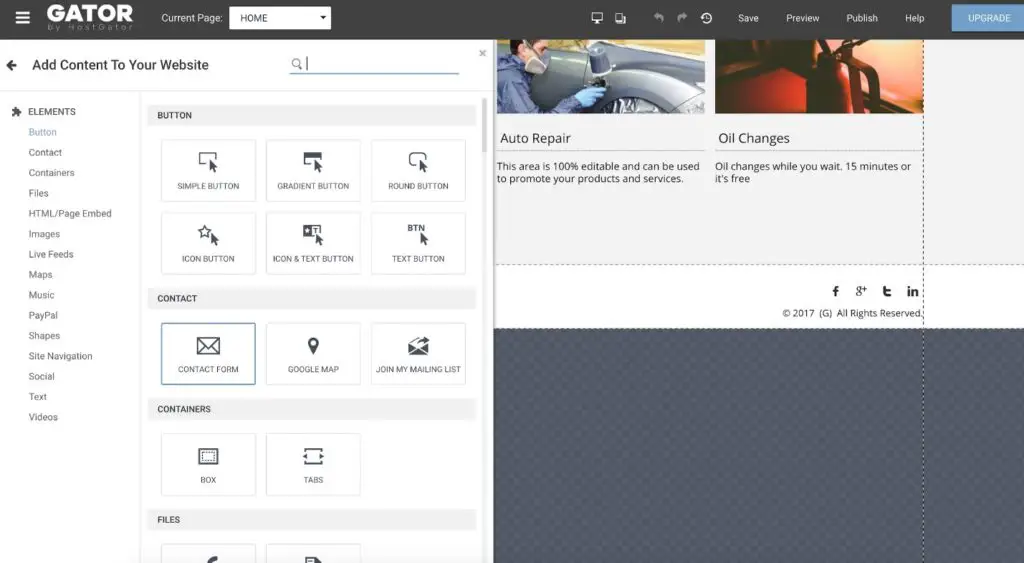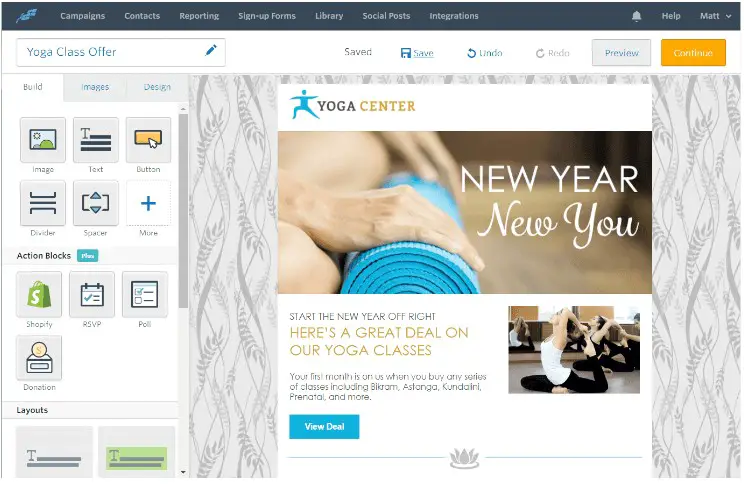Blogging is a great way of showcasing your content related to your interests or talent in front of the whole world. Besides this, it can also be a great source of earning money.
In today’s internet world everyone from individual bloggers to big enterprises everyone has to choose the best blogging platform to reach their targeted audience. The blogging platform that you choose will act as the backbone of your blog, hence choose it wisely.
Here are my favorite Market Research & SEO tools:
|
#1
Great Value For Money
|
Mangools is one of my go-to tools to easily identify keyword opportunities to target. With the additional benefit of having all the metrics in one place to easily filter the best ones, it really facilitates the market research process. It’s also very easy and intuitive to use so I don’t have any issues with getting started quickly. And if you are on a budget, they offer an affordable monthly plan that will fit your needs. |
9.8 |
Visit Website at Mangools.com |
|
#2
Most Popular
|
Semrush is the best SEO tool on the market. It’s packed with features that make it easy to find data and insights about your site, competitors, and industry. You can use it to monitor your backlinks, track rankings across multiple keywords, see who’s linking to you (and who isn’t), spy on competitor sites…the list goes on. |
9.8 |
Visit Website at Semrush.com |
More of my favorite Marketing Tools:
|
#1
Best Value
|
Jarvis is a tool that allows you to generate any content 10x times faster! I was able to create a blog post in a matter of 15 minutes or less. Their AI assistant can write the content for you or even suggest topics in the niche you're in and research the market for new insights, data and content. They have a 5 day trial for free |
9.8 |
Visit Website at Jarvis.ai |
|
#2
Very Popular
|
TubeBuddy makes your YouTube marketing easy. It's a browser extension that adds a layer of tools directly on top of YouTube’s website. With just a few quick clicks, it helped me grow my channel from 0 subscribers to 1000s of subscribers using keyword research, advanced analytics and much more. |
9.8 |
Visit Website at Semrush.com |
How to choose the Best Blogging Platform to Earn Money?
Before you start to choose the blogging platform, you need to consider few things which are listed below:
- What is the reason you are creating this blog?
- What niche is it going to be in?
- What is the type of content you’re going to have? Are you interested in doing reviews, giving tips, creating tutorials, or something else?
- What is the size of your blog? Is it a small or a big scalable blog?
- Estimated Budget: Do you have enough resources to invest in your blogging career, or it’s just a hobby?
Once you get the answer to this question, you’ll have a clear idea of what type of blogging platform you need.
And it will also limit your blogging platform choices as there are both free and paid platforms options available.
Next, will be your writing skills: Do you have any experience as a blogger or you are a beginner?
If you have some experience, then you should opt for the platforms which offer you more customized services. And if you are first- time blogger, then go for the user-friendly platforms.
So helping you in choosing the right platform where we have prepared a list of top websites along with their features and pricing.
Here we have a detailed analysis of some of the best paid and free website building tools that can be very useful for bloggers. All of them have their pros, cons, and pricing ranges so that you can select the one which fulfills your needs in the best possible manner.
Table Of Content:
15 Best Free and Paid Blogging Platforms To Make Money Online:
Best Paid Blogging Platforms:
- Managed WordPress Site With WPengine
- Managed WordPress Site By SiteGround
- Squarespace
- Gator By HostGator
- Constant Contact Website Builder
Best Free Blogging Platforms:
Best Free Blogging Platforms to Make Money:
1. Wix – Best For Beginners
Wix is a website building tool that is being used by millions of various individuals for their blog posts and different businesses in order to develop their website. Here you can develop your website or blog for free. The main deal is that Wix will have their own adds on your developed site or if you want to put your own adds, then you will have to buy your own domains and hosting services.
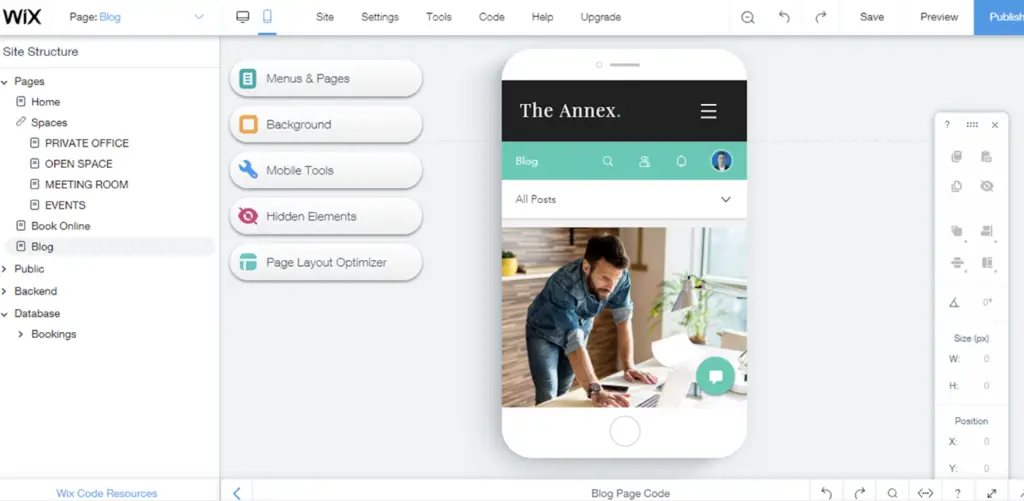
This is basically a drag and drop based website development tool which can be considered the best option for many individual bloggers and business individuals.
Pros
- It allows users to customize their site using Wix template collection.
- Wix comes with site-building drag-and-drop tools, which are easy to use (coding skills are not required).
- The setup process is quite simple (beginners can use it easily).
- You can use third-party apps to customize your blog
Cons
- Once the template is chosen by the user it cannot be changed after your website goes live.
- Wix free version offers limited services and bloggers have to spend more money on third-party apps.
- If you use a free account – it has limited features and Wix runs its branding and ads on every site.
2. Medium
This platform has gained a lot of popularity in a very short time just because it is very suitable for writing blogs. This is the reason is very popular among writers, journalists, and bloggers because it gives a very easy to use interface. Another interesting things as that the people who are going to post here, need only to make their account and it is all free for them but the people who will be reading the content present on this platform have to pay for getting the services.
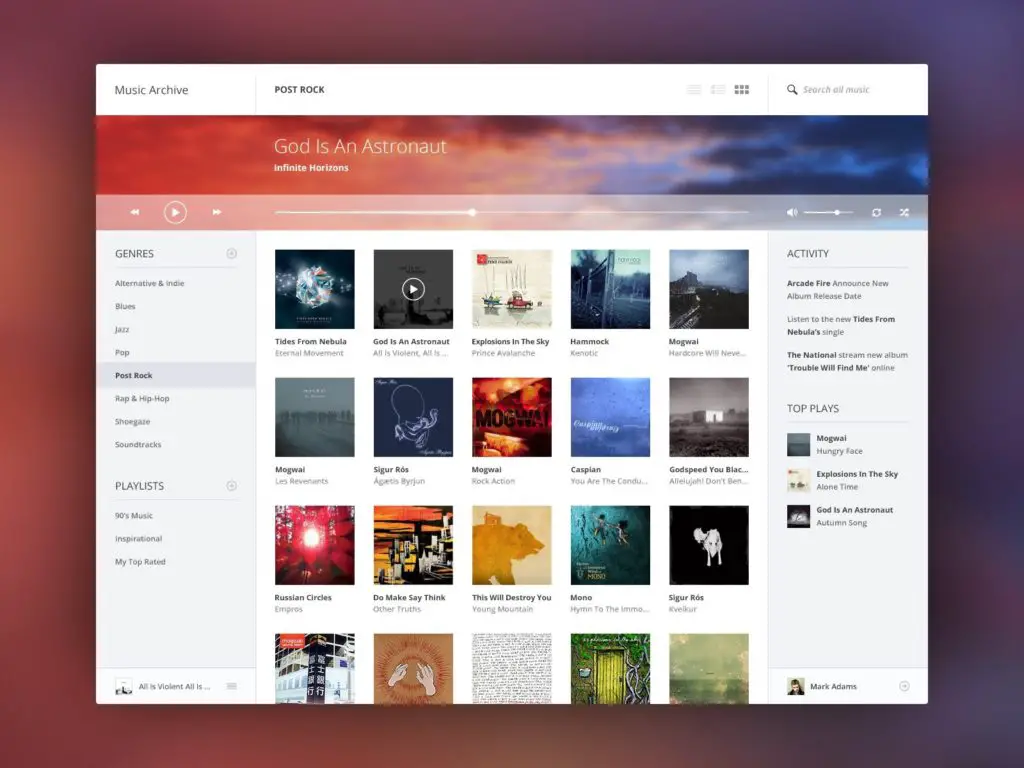
This money is paid to the writers. There is not much need for any designing and all you need to do is to write and share your content which can earn you money.
Pros
- It is very easy to use (no coding skills needed), and gives a smooth writing experience.
- It is completely free of cost.
- It allows you to easily share your content with the people.
Cons
- Limited design features for blog designing.
- It comes with basic analytics, and cannot be merged with google analytics
3. Weebly
Weebly is a website development platform that is suitable for bloggers and business individuals because you can design simple and eCommerce sites here with almost no skills in development required. It is a very secure platform with email and chats support. It works on the principles of drag and drop designing.
Pros
- It allows you to customize your website using drag-and-drop Weebly tools and template collection.
- It also comes with the SEO functionalities which helps your blog to rank in the top searches and increase your audience reach.
- Weebly comes integrated with Google Analytics, which helps you to get a detailed analysis of your website content.
Cons
- Integrating multiple users is very limited to a few numbers.
- You get restricted design features.
4. Ghost
Ghost is a blogging platform with many services like it is very easy to set up yet there are no compromises to be made on elegance, it comes with built-in search engine optimization and social sharing services and the loading speed is very good. It is a perfect WordPress alternative where you can build entire websites for personal blogging or business needs.
Pros
- Clean interface focused on blogging and writing.
- It is an open-source web app written in JavaScript and works super fast.
- Its mobile page functionality speeds up the time of the website on mobiles.
Cons
- It is complex to customize Ghost.
- It offers a limited theme library.
5. Blogger
This platform comes with many templates from which you can choose, and it is a great option for beginners. As it is owned and managed by Google itself, you can also make money by posting adds if you are approved by Google AdSense. You need to do nothing as only your approval will be enough for Google to start displaying adds on your site.
Pros
- It gives you an option you want to run Ads on your website or not.
- It ensures the speed and security of your website.
- No maintenance required, as Blogger does all on its own.
Cons
- Less template choice is available.
- If your blog violates any Google terms and conditions, then Google will close your blog itself.
- No frequent updates and features.
6. Tumblr
Tumblr is a bit different from other blogging platforms where you don’t even need to create your own content, you can simply share the content of other people. This is a little bit like a social networking platform. It is completely free but there are many different posting options where you can post even videos and GIFs.
Pros
- It is very easy and simple to set up and use.
- It comes with integrated social media components.
- Being a microblogging platform it makes easy to use the gifs, audio, and images.
Cons
- You do not hold any ownership rights, Tumblr holds all.
- You cannot backup or import your blog to any other platform.
7. Webflow
Webflow is a website designing tool just like WordPress with the availability of customization. It is the most suitable option for the beginners of the field or the people who have no programming skills because designing, maintenance, and customization are all very easy here.
Pros
- Easy to use and customized designs available, you need not be familiar with coding.
- An outstanding collection of templates and dynamic content.
Cons
- It is a bit difficult to use compared to other platforms.
- You have to have some understanding of code in order to use it.
8. Joomla
This platform can be used for many purposes like building a website for blogging, small business, and huge website but the best use which can be made out of it is for building blogging websites. This works like WordPress, but you will need to have your own hosting service provider.
Pros
- It is available free of cost and easy to install.
- It comes with high flexibility and multilingual support.
- It holds advanced SEO capabilities to rank your website.
Cons
- You have to manage your blog yourself.
- You might face some issues of extensions compatibility.
9. Jimdo
Jimdo is a website designing tool that can be used to design websites for blogging or eCommerce stores. You can design and host your website here for free. There are many templates that are provided but you can also use your own code for designing your website which can be HTML or CSS code.
Pros
- Easy to use, you can add or edit elements by just drag and drop.
- Jimdo’s strong point is it’s good SEO services.
- Jimdo’s mobile compatibility helps you to make the best website for Android and iOs.
Cons
- The templates you get are limited.
- In the online store, you do not get the credit card gateway service.
10. Typepad
Typepad is another tool for website building that has many templates that are provided out of the box. There is also no programming skill required for building your own website. there are also some options regarding photo albums, multiple author support, and mobile blogging.
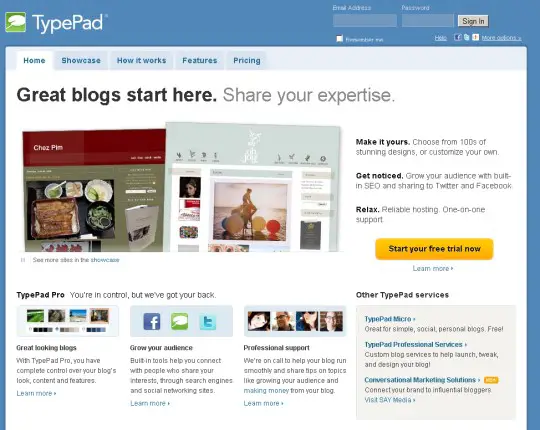
Pros
- It offers a good collection of themes.
- You can rely on its blog analytics to identify the response to your content.
- You can post your content via email or mobile phone.
- You get 24/7 customer support.
Cons
- Its templates and user interface look a bit outdated.
- For customization, you get limited options.
Best Paid Blogging Platforms to Make Money Online:
11. Managed WordPress Site with WPengine
One of the best hosting services for WordPress users, it is known in the field for added features like technical reliability, security, speed. It is sure that these services will not be free, and the best services also make this a not so cheap option. This could be the best option for you if you are not looking forward to seeing your site having errors or unexpected crashes.
Pros
- This is a fully managed hosting service.
- You are provided with a free site migration option.
- Only the experts in the field will be working at your service.
- Very secure and reliable.
- There are free themes available.
- Free data backup and storage available.
- Free 60 days trial available.
- Excellent response time support.
- WordPress updates auto-installation.
Cons
- More expensive than other platforms.
- Works only with WordPress sites.
Pricing
There are many different pricing policies available for every kind of user.
- A startup plan will give you all the basic services which can be a reasonable option for a small business website or a blog. It will cost you $24 per month or you can pay annually and get a $4 discount per month.
- The growth plan is for those business websites which are in emerging state and they need more than basic features. This will cost $115 per month and if you pay annually, you will have to pay $95 for every month which means a $20 per month discount for an annual subscription.
- Scale plans will be the most expensive that they are currently offering. It is for the higher features and it will cost you $290 per month and it gives you a $49 discount per month on an annual subscription.
- If you are still not satisfied with these packages and want an even bigger one, then you can contact them and decide any other package which suits your needs.
12. Managed WordPress Site by SiteGround
It is a cPanel web hosting service that is integrated with google cloud infrastructure. Here you can get all the assistance in getting your website built and you can have all their premium features.
Pros
- There is an option for free site migration.
- WordPress installs automatically.
- Very fast with the help of innovative technologies.
- Daily backups and restore is automatic and free.
Cons
- There is limited data storage.
- The data usage policies are very strict.
Pricing
There are three basic plans out of which you can choose the one that suits you.
- The startup plan starts at a price range of $3.95 to $11.95 per month ranging according to the subscription plan duration which you choose. It is suitable for web starters or smaller websites or blogs.
- Growbig plan starts at a price range of $5.95 to $19.95 per month ranging according to the subscription plan duration which you choose. It is suitable for bigger and emerging websites or blogs.
- Gogeek plan starts at a price range of $11.95 to $34.95 per month ranging according to the subscription plan duration which you choose. It is suitable for web starters or smaller websites or blogs.
13. Squarespace
This website building platform is based on drag and drops designing principles. The main highlight is that it is very efficient for beginners or the people with no knowledge about going and designing because they can easily design and develop their website using drag and drop techniques along with a variety of templates that are available.
Pros
- Stylish templates according to modern trends.
- The easy interface at the convenience of beginners.
- Drag and drop make things easy.
Cons
- You can make customized templates, but this will need programming and coding by yourself.
- There are limited integration options available in comparison to the competitors in the market.
Pricing
They are currently offering 4 price plans which are as follows:
- Personal plan which will cost you $16 per month or $144 per year. This service includes no free domain if you pay monthly.
- A business plan which will cost you $26 per month or $216 per year. This service includes no free domain if you pay monthly.
- Basic online store plan which will cost you $30 per month or $312 per year. This service includes no free domain if you pay monthly.
- Advanced online store plan which will cost you $46 per month or $480 per year. This service includes no free domain if you pay monthly.
14. Gator by HostGator
This site builder tool can be used for making your own website for an eCommerce store or a personal or business blog. It works charms with almost every browser, and it works better than other site building tools that are providing free services. There are many options for designing your site which include colors, elements, design and layout, and many more.
Pros
- No limits on storage and bandwidth.
- Free website transfer.
- Excellent customer support.
- One-click WordPress installation.
Cons
- Some features are limited to some packages.
- It gets expensive sometimes.
Pricing
Their packages are:
- Starter package at $10.95 per month for a monthly subscription, $8.95 per month for a 1-year subscription, and $7.95 per month for a 2-year subscription.
- Premium package at $11.95 per month for a monthly subscription, $11.95 per month for a 1-year subscription, and $10.95 per month for a 2-year subscription.
- eCommerce package at $24.98 per month for a monthly subscription, $19.98 per month for a 1-year subscription, and $18.95 per month for a 2-year subscription.
15. Constant Contact Website Builder
This website designing tool is also based on drag and drop techniques for designing purposes. It is very simple to use, and it also allows operations as simple as mobile-optimized templates. The basic highlight is email marketing services.
Pros
- Easy to use.
- Simple one-click integration with WordPress.
- Good online community.
Cons
- In emails, only youtube video clips can be embedded.
- Limited options
- Built-in templates is very simple.
Pricing
There are two main packages:
- The Email option is starting at $20 per month and it gives one free month when you signup.
- Email plus starts at $45 per month and it gives one free month when you signup.
The good thing is that you are getting a 6-day free trial period for checking their services.
Conclusion
There are many options available which sound good but all of them being better than others makes it difficult for people to choose the best for them. Often, they end up buying the wrong subscription, after reading this guide, you can easily select the tool which fulfills your needs in the best ways regarding the services and the prices.
We Also Reviewed
- SpyFu Review & Pricing
- Top 60 Free Marketing Tools (And Why You Should Use Them)
- Ubersuggest vs SEMrush – Which Is Bettter?
- Top 40 Marketing Automation Software You NEED To Know About
- SEMrush vs. KWFinder Review – Which One Is Better?
- Spyfu Review & Pricing
- Send In Blue – Great For Advanced Marketers
- Top 15 Advanced Website Crawlers for Improved SEO
- 20+ Best Blogger Outreach Services – Top Reviews
- Long Tail Pro Review & Pricing

